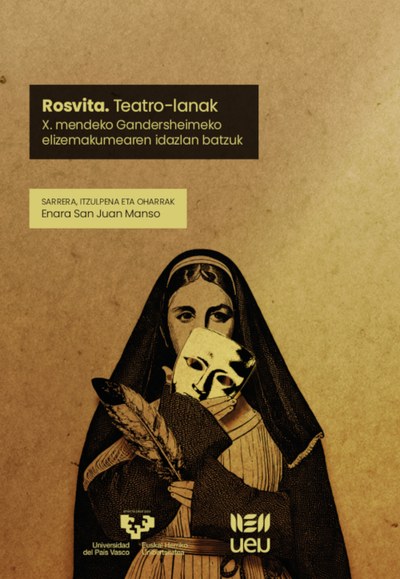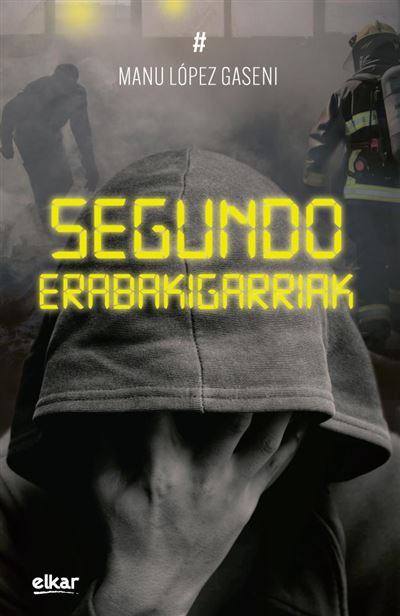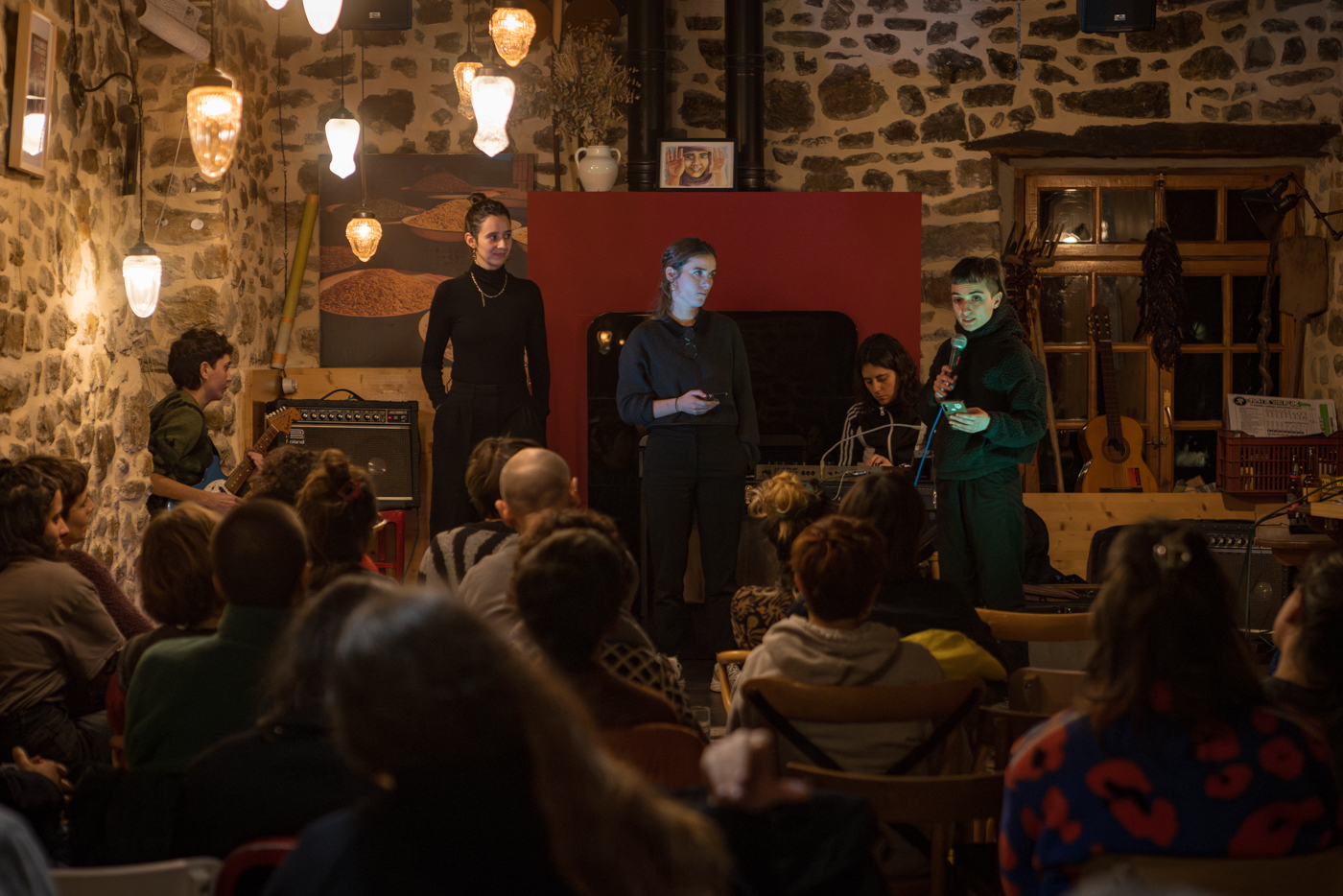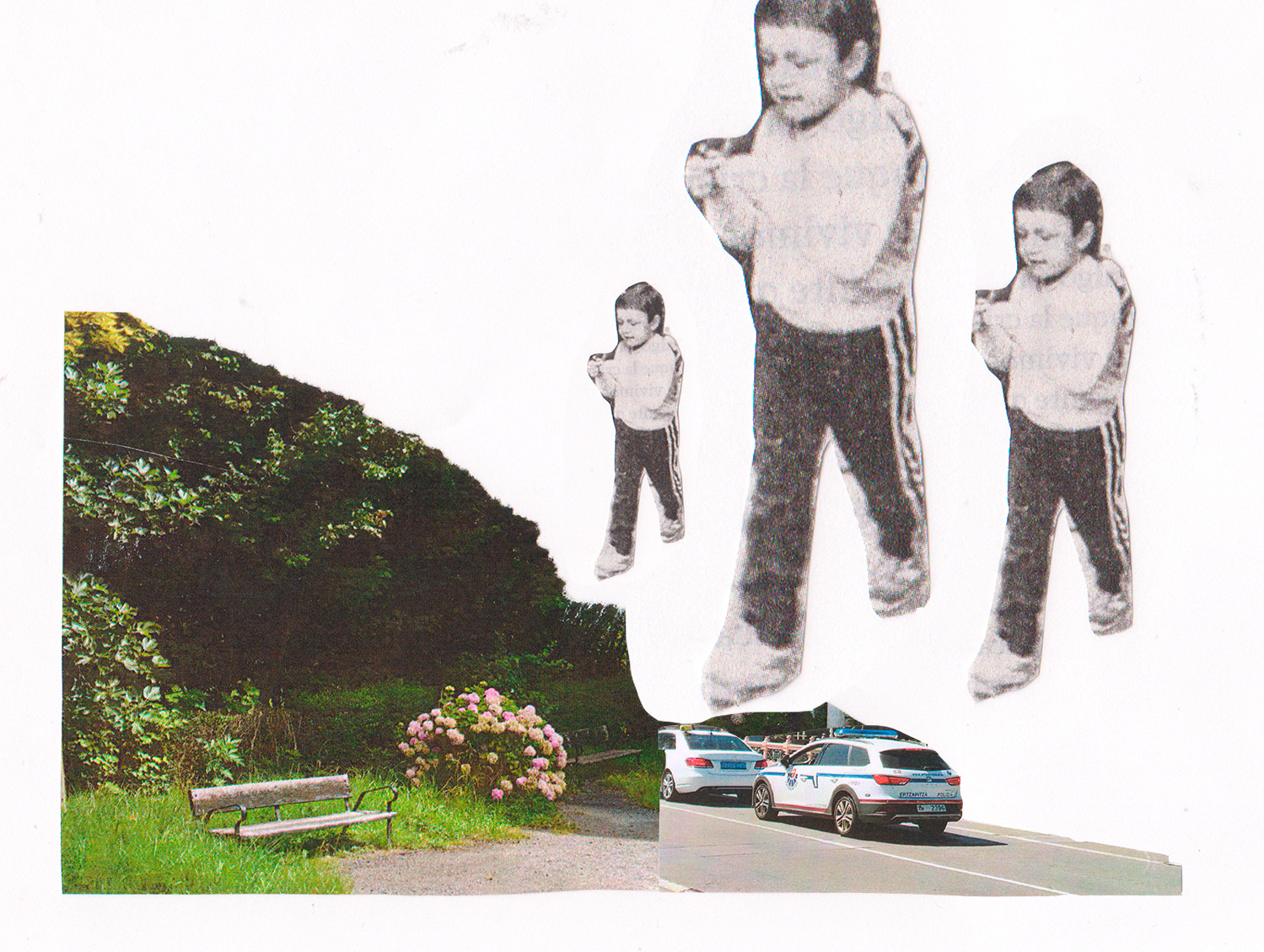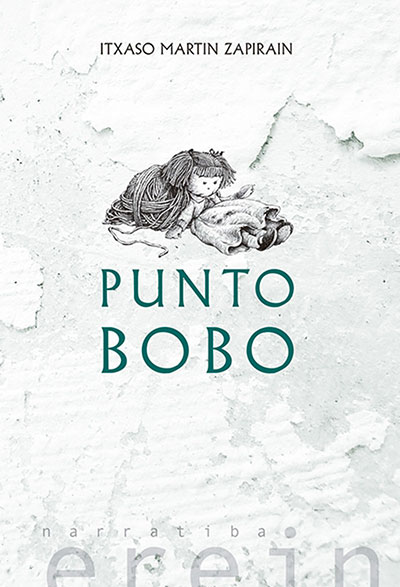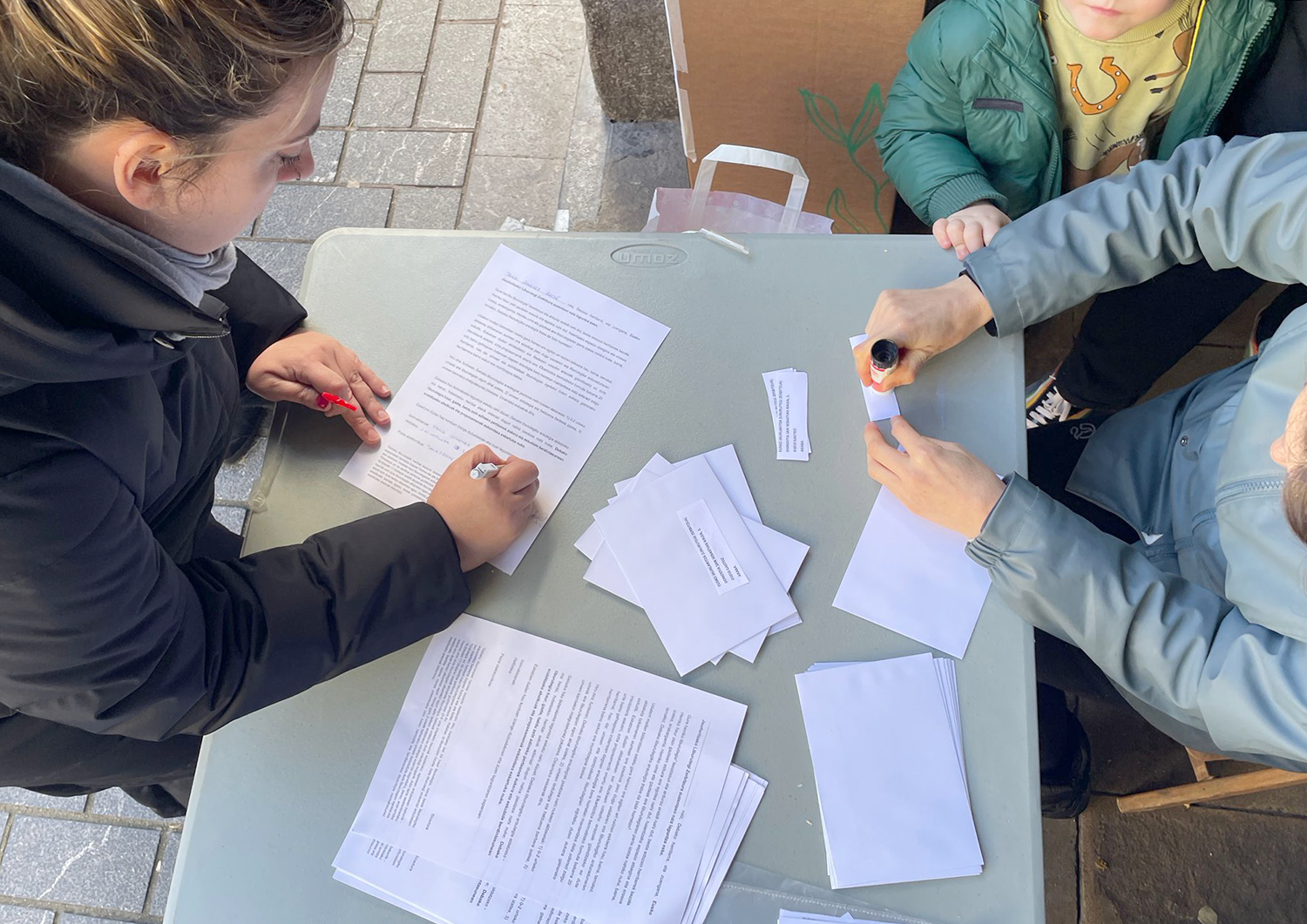"Women and differences don't serve heroic stories."
- The merit of the interviews is sometimes entirely from the respondent. The writer Yuliana Ortiz Ruano takes a film and displays her light in front as a gift. He recently presented in Bilbao the novel Carnival Fever, with the help of the association Ecuador Etxea, and in this regard we have talked about affective geographies, oral memory and the long time after dollarization.

Doña Yuliana Ortiz Ruano. Esmeraldas, Ecuador, 1992
Writer and researcher. He studied the bachelor's degree in literature, especially in arts and writing, and currently works as a researcher at the University of Arts (Guayaquil, Ecuador). He has written three poems and received several awards. In 2022 he published his novel Carnival Fever, which has received a warm welcome both in Ecuador and internationally. This work has been recently presented in Bilbao. He's now writing another novel.
You are from Esmeraldas (Ecuador), a field of great importance in your literature. Could you tell me what it looks like?
It was one of the first free territories in America. The descendants of the Africans began to live there after the boat on which they traveled sank: they escaped into slavery. There was an accident in which these people really shouldn't stay, but as a result, they stayed in resistance for three centuries, and there was no slavery in the area for a long time. In other spaces there was a root system [hacendazgo], while in Esmeraldas, cimarronaje was called "cibrown" to people who lived free fleeing slavery, cooperation between African natives and indigenous people.
And then? The
slavery of Esmeraldes was late, not in the time of the colony, but in the first republic. The problem of Esmeraldas began after the awareness of the Republic of Ecuador: the transfer of rights, slavery and the exploitation of natural resources. In Esmeraldas there were several riots; it is a very communist, also communist territory, and people have had to fight to achieve everything: water, education, etc. Within Ecuador, Esmeraldas is not the most descending region of Africans, but it is the place where the descendants of Africans occupy more public space. There are teachers descendants of Africans, school directors… The colonial division of labor is not as evident, as it happens in the capital or in Guayaquil, where you see the descendants of Africans in the service sector or in cleaning, and not in the exercise of their rights and power and in the occupation of space. I also find this remarkable.
How is the situation today?
Esmeraldas is a territory of conflict and resistance that is always threatened, both by the State and by drug trafficking. Drug trafficking is ultimately part of the State, which allows for appropriate policies for drug trafficking, such as heliports. They closed in the era of Correism, but after the pandemic has reopened the right, creating an atmosphere conducive to narco. We are now experiencing a major crisis, migration and forced mobility on the subject of drug trafficking and war. We are at war.
On the other hand, there is an oil company in Esmeraldas that has caused significant damage, such as fires. The exploitation of the human and natural resources of Esmeraldas is very evident, even illegal. All this is permitted by the State; it cedes territories to international multinationals. Our port is no longer ours, but that of China, where waste is disposed of.
"Dollarisation only benefits banks. It doesn't benefit the person, you can miss everything at any time and the costs of living skyrocket."
Where does the passion for literature come from?
Esmeraldas has a close relationship with orality and poetry. Everybody recites poems, everyone makes music. But my activity has to do with my mother and my aunts and their relationship to literature. Not only oral, but also written. They were librarians, they had libraries, assembled with a lot of effort. With them the object of the book became very close to me.
.jpg)
Investigate the colonial file.
I research the file to write fiction and poetry, yes, by the hand of researchers who do the same thing, like Saidiya Hartman, who writes a critical fabulation from the file. I work with the colonial archive and oral memory is also very important to me. In short, what is kept on paper is the letter of the performer. At the time of the colony, the descendants of Africans were objects and there is no first-person story. If there's a first-person voice in judgment, for example, it's also the letter of writing. Another story is woven through oral memory.
Also through music. Songs occupy a prominent place in your novel.
Yes. Crises generate their own sounds and aesthetics, something very present in the community of descendants of Africans; we come to history through music before we reach school. In the late 1990s, a project of this kind, called Ethnoeducation, was launched, in which the idea was that the communities of descendants and indigenous of Africans could not be reflected from the point of view of white and mestizo, but could write texts in the community itself with researchers and professors of the community. It also opened up the possibility of learning Quechua.
This represented a change in some places, in others, such as the capital and Guayaquil, but above all in Esmeralda a very strong self-talk process was produced through ethnoeducation. In any case, music has always been a very powerful resistance process. Thanks to music politics and poetics, the people can understand their situation, the people become aware of their experiences and their historical segregation.
"People lost everything. Since the 21st century, the loss has been constant, an economy of losses. This adjusted a little bit with the sliding. A return plan was even organized, and"
The sea appears constantly in his work.
The sea is very complex. And the contradictions of the sea are to me a kind of obsession. It looks like a very free place, but very controlled, full of strata. The economy of my country of origin is closely linked to the sea, I come from an island and the economy works at sea. Most of the things we have, good or bad, are part of the sea; the drug also comes in and out of it. The sea seems very extensive, but states set limits. And very strong things happen at sea. In Esmeraldas, very curious things happen, such as prostitution on the high seas.
I would like to ask you about your novel Carnival Fever. How did he start writing?
I was researching about childhood, I'm really interested. The etymological root of Infante means "voiceless", but it is not that the child does not have the ability to speak, but that he has no power in the polis. And I wanted to go deeper into how bodies without agency can have power, because power and power are not the same thing. Searching and searching, I found the voice of the protagonist, Ainhoa, and he wanted to keep me. It was very organic, I committed to pleasure and pleasure. That voice freed me from many things, and I could see the territory from another perspective, that affective geography. I have a cultural and political heritage that Ainhoa doesn't have, and it was very interesting to meet things from a naive perspective, from whom for the first time he meets things.
Was it easy to flush your voice?
It wasn't easy, but it was liberating. I needed years, but they passed me fast. The hardest thing, I think, was to channel some things that I wanted to put into the book but that I was afraid of, like the pregnancy of children and sexual abuse. Geography, to me, is also a problem, if there are situations of violence in a given geography and in a certain social group, I didn't want to ignore them, I wanted to keep the problem.
And you've done it, without leaving aside the innocent look of the child.
Yes, I like to bring other voices through writing. My life is very boring, I can't write just about myself. I find it boring. Adult life is boring and there's a lot of mature literature. I want to write an anti-mature fiction, a fiction related to other things. For me maturity is a system failure. I mean, sometimes we need to be cared for and protected. I don't know how the world works, but when you're older, you have to constantly transform what you know. And that, I think, is false. Anti-mature fictions remind me that nobody knows what the world is like, because we only know a small part of the world, there's another lot of realities, and when we get out of our comfort zone, something happens, and we're not adults or humans at times. So I really like to think about the edge, the edge of things, the edge of territory, the border.
.jpg)
The reader is immersed in this part of the world of Ainhoa, until macro-political events appear. Economic crisis of early 2000 in Ecuador. Did you want to look exactly at that time?
Totally. Dollarization remains an open wound in Ecuador. People got very impoverished, lost all the savings, after studying at university with great effort and had to go here or to the United States to clean the floors. Others got rich, of course. But it's a very strong thing, it's a fully concerted economy, and that's where most of the problems we have today come from.
Could you explain the latter to me?
From the point of view of the dollarized countries, Panama, Costa Rica, Ecuador, are essentially tax havens suitable for the cleaning and diversion of assets. You can do a lot of unregulated things, because that economy is regulated in the United States, and the United States has many strange ways to circumvent asset taxes. Dollarisation only benefits banks. It does not benefit the person, you can lose everything at any time and the costs of living skyrocket.
"I am generally afraid to write. I think that's why I write."
Can literature serve to work these processes differently?Recently a researcher at the University of Ecuador wrote an essay on dollarization, and I didn't know that before me there was
no literary work talking about dollarization. The only book on dollarization was written by Jamil Mahuad, who has hurt Ecuador. And of course, it has a very neoliberal discourse.
I'm not talking exactly about dollarization, it's a very broad view, of a child, of a smaller account of a transcendental fact. This changed life, especially of the proletarian, black and marginal community. Some benefits were in the capital and in Guayaquil, as always. But the people on the periphery are still waiting for the supposed profits of the dollar and are not there.
This reality is often analysed from a documentary point of view and can be stressful and complex. Fiction can be a liberating tool for thinking about transcendental problems from another place.
See how they influence people's lives.
Above all because Ecuador is full of painful migrations. People lost everything. Since the 21st century, the loss has been constant, an economy of losses. This adjusted a little bit with the sliding. A return plan was even organised in which many people returned, especially from Spain and the United States, but now the bank is back in power. And we're in a very strong ostracism process.
In recent months he has been away from home, presenting the book and in a writing stay.
Yes, I have spent a month in Granada (Andalusia), then I went to Italy and Portugal, and then to Granada another month. It was a nice experience. Granada in particular seemed to me to be a very interesting place, due to the issue of Arabs and Africans, there is an interesting mixture of cultures. I will now return to Ecuador at the end of January.
"I like the concept of nuanced history of fiction, because history itself is fiction."
How has he lived what is happening in Ecuador so far away?
It's hard. But I will return: I live there, there I have my work, my friends… It is my country, my house.
He's been writing something else in Granada. Tell something?
I'm writing a novel from the archive, but from the perspective of critical literacy. It's not a historical novel. I really like history, but I don't think it's possible. I don't think history is possible as it is, always the story of another, a story that comes from a heroic look. And heroism is a problem, women and differences are not served by heroic stories, which for us are not. I like the concept of nuanced history of fiction, because history itself is fiction. How history tells us, that can also be very fictional. For example, in Granada they talk about the question of reconquest, but who? What are we talking about? We are all not served by this story, and fiction can have another power. I'm really interested in those smaller stories.
Are you motivated by writing?
Yeah, I've long wanted to do this. But I was a little afraid, and now I've done it taking advantage of the distance.
You were afraid… Explain it?
I am generally afraid to write. I think that's why I write. When it comes to writing, I'm worried about some things, but I'm always on the brink of fear, avoiding fear. There is a vertigo when I always write.
Rosvita. Teatro-lanak
Enara San Juan Manso
UEU / EHU, 2024
Enara San Juanek UEUrekin latinetik euskarara ekarri ditu X. mendeko moja alemana zen Rosvitaren teatro-lanak. Gandersheimeko abadian bizi zen idazlea zen... [+]
Idazketa labana bat da
Annie Ernaux
Itzulpena: Leire Lakasta
Katakrak, 2024
Decisive seconds
Manu López Gaseni
Beste, 2024
--------------------------------------------------
You start reading this short novel and you feel trapped, and in that it has to do with the intense and fast pace set by the writer. In the first ten pages we will find out... [+]
Istorioetan murgildu eta munduak eraikitzea gustuko du Iosune de Goñi García argazkilari, idazle eta itzultzaileak (Burlata, Nafarroa, 1993). Zaurietatik, gorputzetik eta minetik sortzen du askotan. Desgaitua eta gaixo kronikoa da, eta artea erabiltzen du... [+]
When the dragon swallowed the
sun Aksinja Kermauner
Alberdania, 2024
-------------------------------------------------------
Dozens of books have been written by Slovenian writer Aksinja Kermauner. This is the first published in Basque, translated by Patxi Zubizarreta... [+]
Sometimes I don't know if it's too much. That we're eating a pipe, that we're talking about anything else, that we're bringing it up. We like to speak aloud, to leave almost no pause, to cover the voices, to throw a bigger one. Talk about each one of them, each one of them, what we... [+]
Puntobobo
Itxaso Martin Zapirain
Sowing, 2024
----------------------------------------------------
The title and cover image (Puntobobo, Wool Bite and Rag Doll) will suggest mental health, making the point and childhood, but more patches will be rolled up as the book... [+]
Party and recreation. Oral History of Rock Radical Vasco
Javier 'Jerry' Corral
Books, 2025
------------------------------------------------
Javier Corral ‘Jerry’ was a student of the first Journalism Promotion of the UPV, along with many other well-known names who have... [+]
Itsasoa bete urre
Dani Martirena
Irudiak: Ana Ibañez
Txalaparta, 2022
--------------------------------------------
Liburu honetara barneratzen den irakurleak sentsazio ugari izango ditu. Deigarria da azaleko letren urre kolorea eta zuritasuna, goialdean ageri den... [+]











